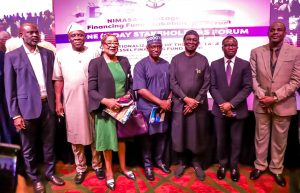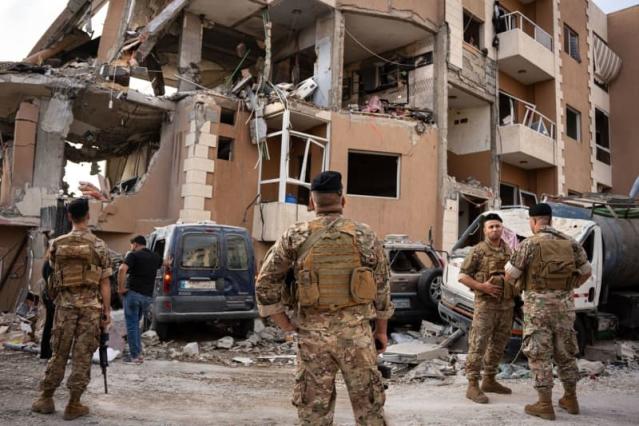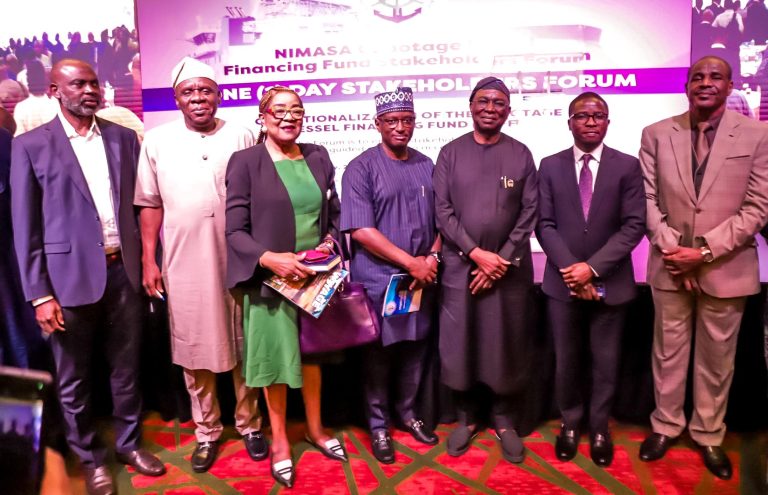…As Official says US believes ex-Venezuela oil czar took bribes***
A British warship will sail from Australia through the disputed South China Seanext month to assert freedom of navigation rights, the UK’s defence secretary said on Tuesday in a move likely to irk Beijing.
China claims nearly all of the resource-rich waterway and has been turning reefs and islets into islands and installing military facilities such as runways and equipment on them.
Defence Secretary Gavin Williamson said HMS Sutherland, an anti-submarine frigate, would arrive in Australia later this week.
“She’ll be sailing through the South China Sea (on the way home) and making it clear our navy has a right to do that,” he told The Australian newspaper after a two-day visit to Sydney and Canberra.
He would not say whether the frigate would sail within 12 nautical miles of a disputed territory or artificial island built by the Chinese, as US ships have done.
But he said: “We absolutely support the US approach on this, we very much support what the US has been doing.”
In January, Beijing said it had dispatched a warship to drive away a US missile destroyer which had “violated” its sovereignty by sailing close to a shoal in the sea.
Williamson said it was important that US allies such as Britain and Australia “assert our values” in the South China Sea, which is believed to hold vast oil and gas deposits and through which US$5tn in trade passes annually.
“World dynamics are shifting so greatly. The US can only concentrate on so many things at once,” he said.
“The US is looking for other countries to do more. This is a great opportunity for the UK and Australia to do more, to exercise leadership.”
China in December defended its construction on disputed islands, which are also claimed by Southeast Asian neighbours, as “normal” after a US think tank released new satellite images showing the deployment of radar and other equipment.
In a separate interview with Australia’s national broadcaster the ABC, Williamson warned of the need for vigilance to “any form of malign intent” from China, as it seeks to become a global superpower.
“Australia and Britain see China as a country of great opportunities, but we shouldn’t be blind to the ambition that China has and we’ve got to defend our national security interests,” he said.
“We’ve got to ensure that any form of malign intent is countered and we see increasing challenges – it’s not just from China, it’s from Russia, it’s from Iran – and we’ve got to be constantly making sure that our security measures, our critical national infrastructure is protected.”
Australia has been ratcheting up the rhetoric against China in recent months, with ties tested in December when parliament singled out Beijing as a focus of concern when it proposed laws on foreign interference.
Meanwhile, U.S. prosecutors believe Venezuela’s former oil czar received bribes as part of a major graft scheme that allegedly took place in the OPEC nation’s oil industry, an American official familiar with the probe said.
Rafael Ramirez, who was one of Venezuela’s most powerful officials until he quit as the country’s U.N. ambassador in December, was named as a bribe recipient although not charged in an indictment against five other former senior officials that was partially unsealed Monday.
In the indictment, prosecutors in Houston allege two of the charged individuals told businessmen that proceeds from bribe payments they made in exchange for quick payments and contracts with Venezuela’s state-run oil giant PDVSA would be shared with a senior Venezuelan official, identified in the unsealed portion as “Official B.”
That unidentified Venezuelan politician is Ramirez, a U.S. official told The Associated Press. The official agreed to talk about the case only on condition of anonymity because they were not authorized to discuss the matter.
In 2016, Venezuela’s opposition-led National Assembly said $11 billion went missing at PDVSA in the 2004-2014 period, when Ramirez was in charge of the company. In 2015, the U.S. Treasury Department accused a bank in Andorra of laundering some $2 billion stolen from PDVSA.
Ramirez in the past has denied any wrongdoing and dismissed the U.S. probe into PDVSA as a politically motivated attempt to undermine President Nicolas Maduro’s socialist government. After resigning his U.N. post, Ramirez left the United States for an undisclosed location, and he did not immediately respond to a request Monday seeking comment.
Prosecutors in the U.S. as well as Venezuela have been slowly closing in on his inner circle.
Among those charged Monday was PDVSA’s former chief of corporate security, Rafael Reiter, who frequently appeared alongside Ramirez in public. Another was a former deputy energy minister, Nervis Villalobos, who stood in as head of PDVSA when Ramirez was on official business abroad. Both Reiter and Villalobos were arrested in Spain in October on U.S. warrants and are pending extradition along with a third former official, Luis Carlos de Leon.
Separately, Ramirez is also the target of a criminal investigation in Venezuela for taking a cut of oil contracts brokered by associates including his cousin, Diego Salazar, who was arrested in December. Ramirez has called the Venezuelan probe retaliation for his decision to break with Maduro, who he has accused of running Venezuela’s once-thriving oil industry into the ground and abandoning the socialist ideals of the late Hugo Chavez.
Much of the evidence gathered by U.S. prosecutors stems from a case in Houston against two Venezuelan businessmen residing in the United States, Roberto Rincon and Abraham Shiera, who in 2015 were charged with violating the foreign corrupt practices act by paying bribes in exchange for contracts to build electricity generators for PDVSA at a time Venezuela was suffering widespread power outages. They are among 10 individuals and officials who have so far pleaded guilty in connection to the U.S. probes into corruption at PDVSA.
According to Monday’s indictment, both men were approached by PDVSA officials in 2011, at a time the cash-strapped oil monopoly was in arrears with several vendors.
The officials, referred to as the “management team” in the indictment, are alleged to have offered Rincon and Sheira’s companies priority over other vendors and future business in exchange for bribes in the amount of 10 percent of all payments received. Over the next few years, the two men purportedly sent over $27 million to an account in Switzerland for which Villalobos and De Leon were authorized signers.
Guardian UK with additional report from ABC



















